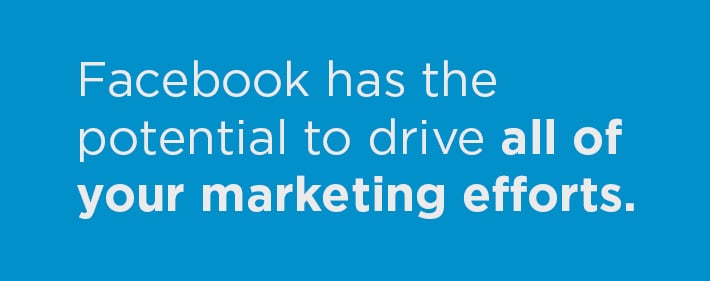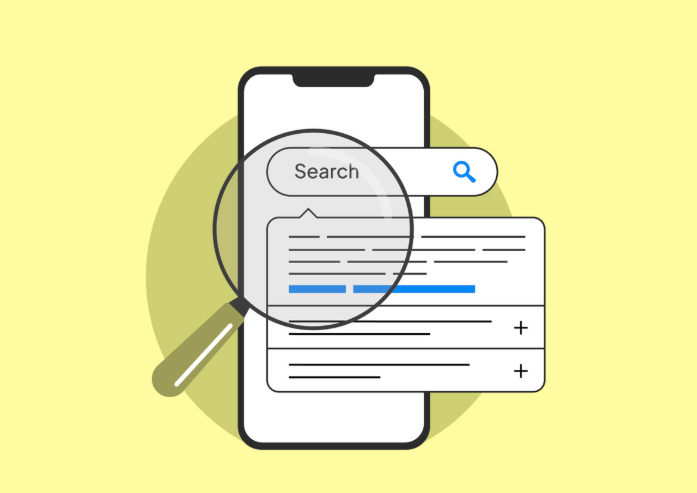Facebook is a powerful marketing tool, and it can be especially powerful in the healthcare environment. Done right, it allows you to reach a larger share of your audience than almost any other digital platform.
The hidden key to getting there: trust.
Working in healthcare, you already know. Trust is not everything, but it might be close. Your expertise matters, but so does your ability to build credibility and trust with your patients. That's easy to do in an office, where you can hang up your medical certificates and interact directly with people. It's more difficult online, where you have limited time and attention spans to contend with.
That's why building a trustworthy healthcare brand on Facebook has to be among your top digital priorities when trying to promote your healthcare practice.

5 Reasons to Prioritize Your Facebook Presence
Facebook, in many ways, has the potential to drive all of your digital marketing efforts. It's just that big, and that impactful for your audience. Before we get into the how, let's cover the 5 reasons why Facebook should be front and center.
- Meet your audience where they are. After all, Facebook has more than 250 million active users in the U.S. and Canada alone.
- Share health information. Nearly 90% of older Americans have used Facebook to seek out info about their health.
- Keep your audience updated. More people now get their news from social media than print. You can use Facebook to share office updates, new hires, and more.
- Answer questions. From comments on your posts to direct messages through Messenger, Facebook helps you interact with current and future patients.
- Build your healthcare brand. Facebook allows you to showcase both your personality and expertise, if you do it right (more on that below).
7 Steps to Build a Trustworthy Healthcare Brand on Facebook
Let's clarify one thing: Facebook is not a traditional marketing platform. You can gain trust only if you engage in conversations with your audience, showcasing your expertise but also your personality. Instead of simply promoting your office and services, it pays to be strategic in gaining audience trust.
That sounds complicated. It doesn't have to be. Break it down into its individual steps, and building that Facebook strategy for a more trustworthy healthcare brand is actually quite achievable. So that's exactly what we'll do.
1) Find Great (and Credible) Content to Share
The great thing about Facebook is that you don't have to rely only on your own content to peak your audience's interest. Especially in healthcare, third-party content can be just as valuable.
Depending on your medical field, you might want to share anything from general advice to specific or new developments in the field. Share relevant links directly, but make sure they're credible by limiting yourself to these sources:
- Medical studies and journals, as long as you feel comfortable 'translating' away from jargon and into language your patients understand.
- Popular literature, as long as it's been established as credible. Women's Health magazine is a great example.
- Popular health experts, as long as you judge them to be credible and feel comfortable enough to stand behind their expertise.
Find relevant articles or videos and where you can, add your own spin to them. That might be explaining a piece of jargon, or pointing out a particular piece that's especially relevant for your audience.
2) Produce Your Own Value-Added Content
Third-party content is great, but the bulk of your posts should still come from your own practice and your own voice. Take the time to make sure that, rather than posting last minute, you can be strategic about what these posts might be.
The possibilities here are almost endless. So vast, in fact, that the potential can be paralyzing. So it's helpful to ask yourself a few questions as you try to develop content ideas:
- What type of advice would you share with patients on a regular basis and in personal conversation?
- Is there anything going on in the news cycle that might be relevant to your practice and your audience?
- Are you aware of new developments in the field that you might want to explain more?
- Are there updates about your office that you think your audience should know? Sometimes, a profile of your PA can build trust because it helps your patients get to know them.
With some of these prompts, plus the third-party content above, you'll have plenty of material to post on Facebook at the recommended and optimal frequency.
3) Minimize the Self-Promotion
Producing social media content, especially on Facebook, is a double-edged sword. It's tempting to post as much as possible about your office, trying to get your audience's attention. But if you tilt too much to self-promotion, they'll tune out.
Instead, try to make your content about your audience. Think about the types of posts they would actually find valuable.
The above-mentioned PA profile helps them feel more connected to the professional they need to trust. Simply telling your audience to make an appointment probably won't have the same effect.
At the same time, there is a definite spot for office-related updates in your Facebook content strategy. If, for instance, your office hours or procedures change (as it did for many healthcare providers during the COVID-19 pandemic), your Facebook page is a great place to communicate that.
4) Keep Your Voice Authentic and Personable
This is important: if you sound like a robot, your audience will never trust you. That seems obvious when you're talking to them in person, but is much more difficult to follow when you're just typing some words on a keyword.
Still, it's crucial to really gain that trust. Credibility and authenticity go hand-in-hand. Your audience should feel like they're talking to you, the highly qualified but personable healthcare professional; not you, the faceless pretender expert.
Of course, authenticity can go too far. Consider the authenticity paradox, which states that the more authentic a leader tries to become, the more their credibility will tank. It's important to find a balance, not lean into one direction or the other too heavily.
5) Answer Your Audience Quickly and Honestly
When you're on Facebook, and especially if you've built up a sizable audience of patients with quality content, they will try to interact with you in a number of ways:
- They'll post comments and questions under your individual post.
- They'll send you direct messages via Facebook Messenger with personal and health-related questions.
- They'll leave reviews about their experience in your practice.
For the sake of your credibility, you need to respond to these interaction attempts. Answer questions honestly and to the best of your ability. Address criticism constructively and with your patients' best interest in mind.
Speed also matters. Your audience expects a response in at least six hours, and often less. Company pages also have a feature to let your audience know how quickly you respond on average, so a faster time there will play a core role in building trust.
6) Take Care to Stay in Compliance
Even with all of the above notes, it's still important to stay in compliance with regulations related to patient privacy. Yes, we're talking about HIPAA in this section.
It's easy to get caught up in the casual nature of Facebook. You might find yourself sharing more than you care to, before you even know it. Unfortunately, that could get you in serious legal trouble. And, according to some experts, that even includes the supposedly private Facebook Messenger.
If you take care to avoid it, staying in the green is not actually that difficult. These social media guidelines from HIPAA are important to read, and break down into easy sections. Anyone in your organization with the ability to post on Facebook should be familiar with these rules.
7) Strategically Elevate User-Generated Content
Finally, you can alleviate your own content creation workload while also increasing your credibility if you leverage user-generated content (UGC) the right way. After all, it's been shown to be one of the most successful trust-builders in social media, especially among younger audiences.
In most industries, UGC tends to revolve around sharing positive reviews. That still has value in healthcare, but you have other opportunities as well:
- Contests among your audience with a targeted incentive, such as a donation to a medical charity.
- Light-hearted asks for patient opinions about relevant medical topics in the news. Be sure to fact-check where needed, though.
- Open Q&A sessions with your audience, potentially through Facebook Live.
Not every bit of user-generated content is worth elevating in these ways. But if you sprinkle them throughout your content strategy, they can play a core role in building that audience trust.
Finding a Facebook Marketing Partner to Help You Build Trust
All the above is pretty straightforward. But let's face it: it's also time-consuming. Depending on the size of your practice or organization, that might be time you don't have.
So why not find a facebook marketing partner that does? Our expertise in healthcare social media and ability to help with your Facebook posts might make us the perfect fit. Learn more about our expertise in healthcare marketing and give us a call at (800) 928-4680 to start the conversation today.
About The Diamond Group
The Diamond Group is a Wilmington, NC based digital marketing and web design agency committed to helping today's small businesses grow and prosper. With a 28-year track record of success, their proprietary in-house system and concierge-level multi-disciplinary team approach to marketing guarantees double-digital growth and optimizes marketing ROI.
Related Posts

7 Signs Your Brand Needs a Refresh in 2026
